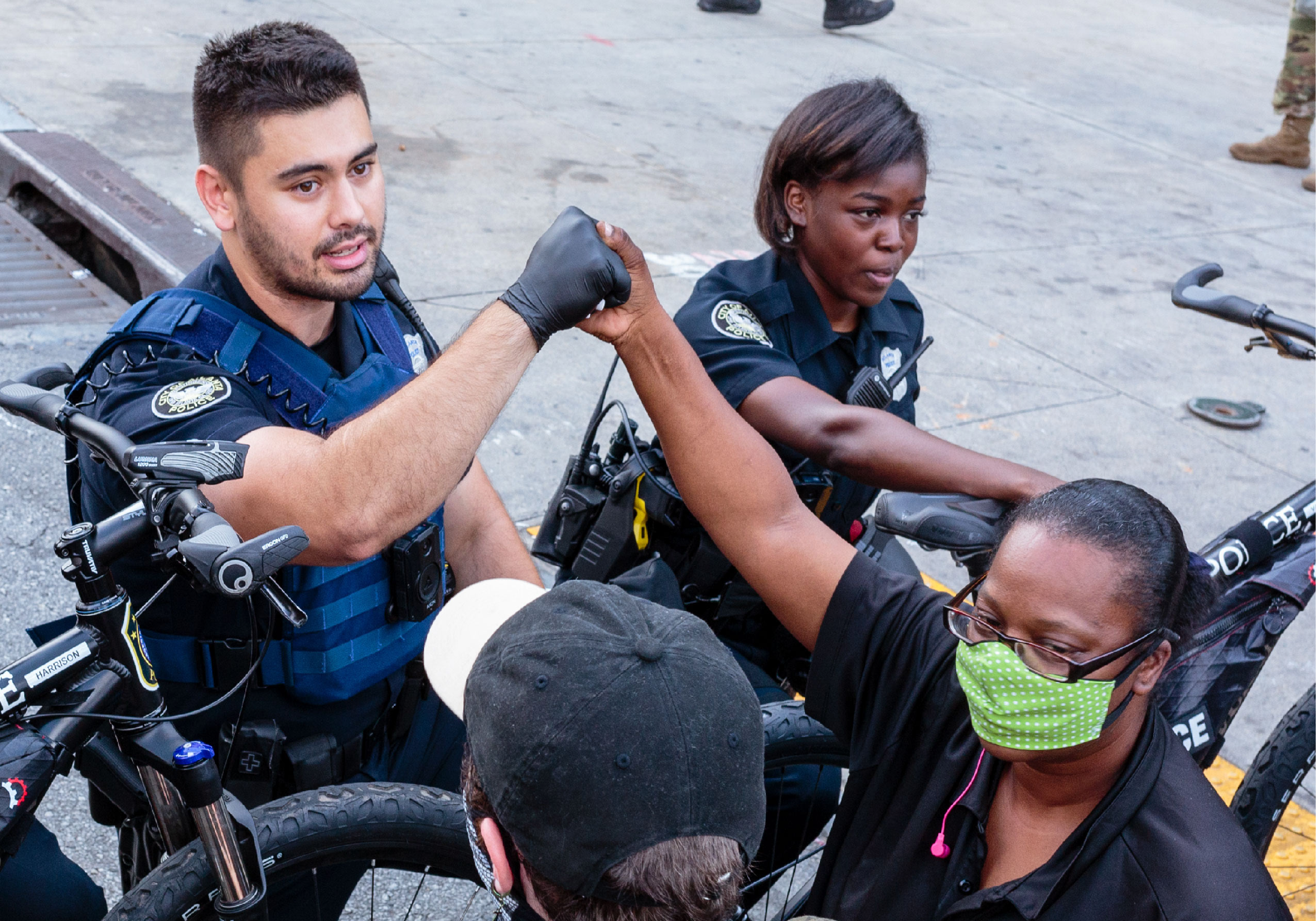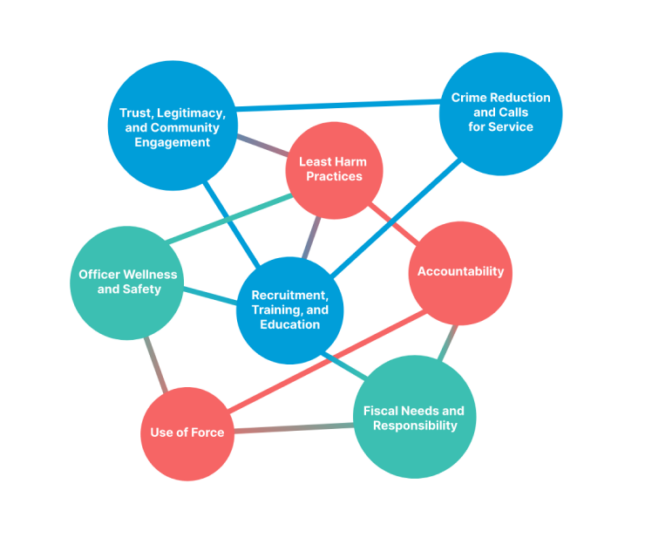Project Background
Measures for Justice began to develop a draft set of police measures in 2019 by convening a Policing Council. The Council is a senior advisory group comprised of some of the most experienced minds in the area of policing in the United States. It was chaired by Laurie Robinson, a policing scholar and former co-chair of the White House Task Force on 21st Century Policing, 2014-2015.
“Public trust in law enforcement is critical in a democracy. But at a time when that trust has been shaken nationally by highly-visible events, I applaud creating multidimensional police performance measures in a collaborative process with both law enforcement leaders and communities.” – Laurie Robinson
MFJ has also been working with community leaders and organizations across the country to understand what aspects of policing need to be measured alongside what policies. Part of this work convened a Roundtable on Improving Data for Racial Equity in Policing co-hosted by the Center for Open Data Enterprise (CODE). The Roundtable explored the use of data in the various dimensions of policing we identified, reviewed existing data sources, gaps, and challenges in the relevant data, highlighted high-priority use cases of data application, and identified opportunities to improve data and put it to better use.
MFJ collated findings from the Roundtable and is currently piloting our draft set of measures in two communities, the West Sacramento Police Department in California and the Rochester Police Department in New York. Both pilots are also being informed by local focus groups.







